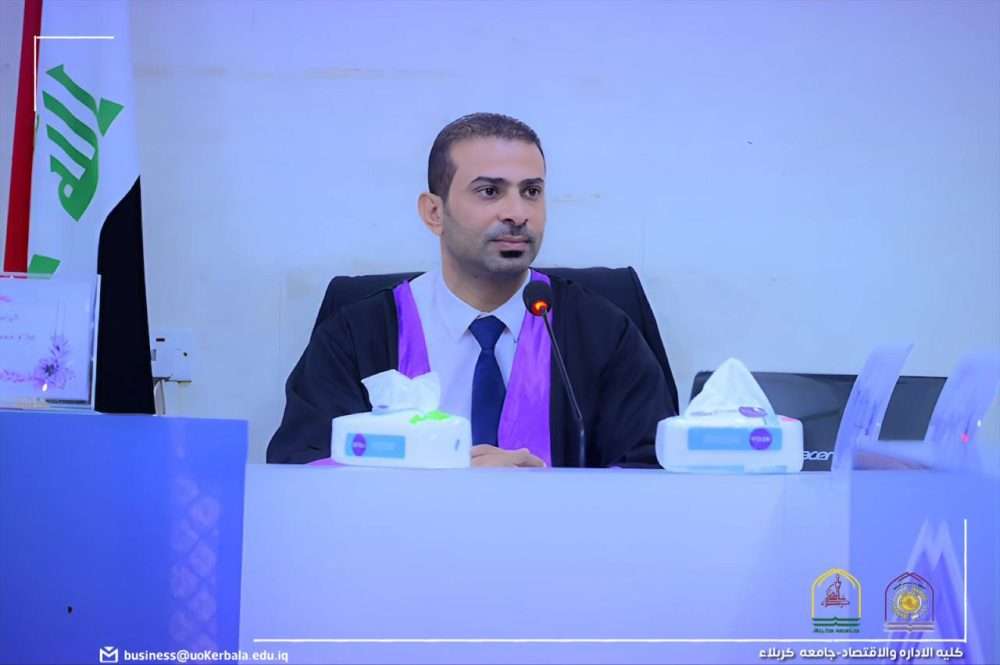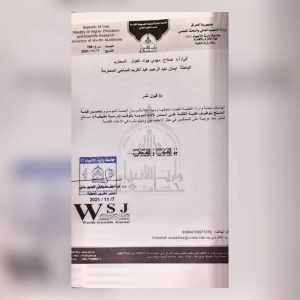The Efficiency of Internal Audits and the Effectiveness of Risk Management in Enhancing Compliance and its Reflection on the Quality of Financial Statements
A thesis submitted to the Board of the College of Administration and Economics – the University of Kerbala, which is part of the Requirements for the Degree of Master in Since of Accounting
Of the student
Alaa Mohammed Oshba Nasser
Supervised by
Prof. Dr. Assad Mohammed Ali Wahhab
Abstract:
The research aims to measure the impact of the professional competence of internal auditing in the Iraqi public sector, as well as the effectiveness of risk management and the quality of financial statements, and to demonstrate the important role between the two functions in enhancing compliance with laws, regulations and instructions, which helps in raising the efficiency of the internal audit function in the Iraqi public sector to reduce waste of public money. And corruption in all its forms, which in turn will contribute to the issuance of high-quality financial statements, represented by the final account of the Iraqi state and the preparation of federal public budgets. To measure the research variables, an electronic questionnaire form was used, which was distributed to internal auditors in the Iraqi public sector departments. The number of questionnaire forms distributed and suitable for analysis reached 283 questionnaires. To achieve the research objectives and reach the results for the research sample, the SPSS program, version 25.v, was used. Testing hypotheses using simple and multiple regression. The results showed that a large number of government departments lack a strategy for continuing education for internal audit employees, and this indicates a lack of sufficient interest by senior management in this issue. Also, the lack of clear risk management strategies and policies adopted by many government units in the Iraqi public sector, and the lack of a plan to confront the risks of crises and natural disasters, may expose them to major losses and waste of public funds. Despite this, a large percentage of the government units in the research sample are committed to liquidating all observations indicated by the work teams in the Financial Supervision Bureau, and are committed to applying the accounting rules issued by the Accounting and Regulatory Standards Board in Iraq, and this indicates a good degree of compliance. The qualitative characteristics of financial information in the Iraqi public sector units help the relevant government agencies to make decisions with more confidence, which leads to achieving accountability and transparency and enabling supervisory authorities to verify the efficiency of government units in implementing the allocations contained in the budget and monitoring disbursement and revenue collection operations.






























































